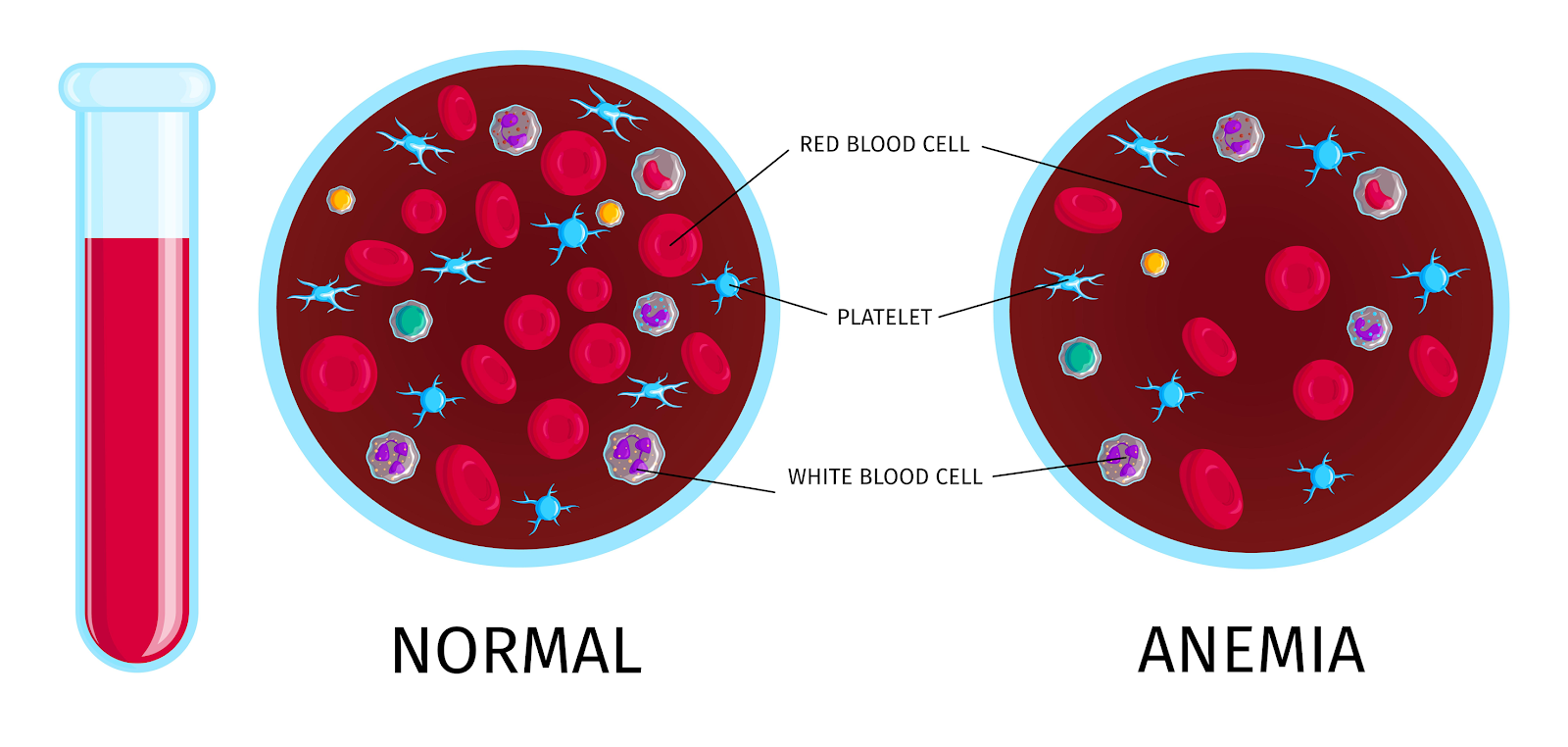Disclaimer:
This article is for information purposes only. It is not a substitute for medical advice or treatment. Seek medical care for your treatment.
What is Hemolytic anemia?
Anemia is a condition in which body does not have sufficient healthy red blood cells. Red blood cells play a pivotal role in providing oxygen to your body tissues. Hemolytic anemia is a blood disorder that destroys red bloods or they perish faster than your body produces new blood cells. This can happen because of certain diseases, autoimmune disorders or cancer. Low red blood cells count can lead to weakness, irregular breathing, dizziness and irregular heart rhythms. Mostly health care providers can treat hemolytic anemia after knowing the cause, if left untreated hemolytic anemia can lead to chronic heart conditions.
Hemolytic anemia can lead to various heart conditions:
There are different types of hemolytic anemia and every kind harms people of all groups, races and genders. It can cause serious heart problems including arrhythmia, cardiomyopathy and heart failure.
Types of hemolytic anemia:
Hemolytic anemia can be:
- Inherited hemolytic anemia: occurs when parents pass the gene to their children.
- Acquired hemolytic anemia: is not that you are born with it. You may develop it later.
Causes of Hemolytic anemia:
It can be caused by some infections or if someone gets a blood transfusion from a donor whose blood type is not the right match. Hemolytic anemia can also be caused by inherited conditions that influence the red blood cells.
Inherited conditions that can cause hemolytic anemia:
Some of the common inherited conditions are:
- Sickle cell anemia: in this disease your body creates abnormally shaped red blood cells that are confined to small blood vessels, your spleen or liver.
- Thalassemia: it is another bunch of inherited blood disorders that cause your body to make unusual red blood cells that are easily crashed.
- G6PD deficiency: this genetic disorder impacts an enzyme that guards red blood cells. When this enzyme level falls, blood cells are open to some infections or medications are mostly to break apart.
Infections that may cause hemolytic anemia:
Infections associated with hemolytic anemia are:
- Malaria: is the result of a bite by mosquitoes that are infected with little malaria parasites to the people, leaving parasites in people’s blood. Untreated malaria can lead to hemolytic anemia.
- Rocky Mountain spotted fever: is the result of the bite by bacteria infected ticks.
- Haemophilus influenza disease: these infections are caused by the bacteria.
- Human immunodeficiency virus: this virus leads to AIDS.
Acquired conditions that can cause hemolytic anemia:
In this type of anemia you are not born with a certain condition. Your body produces normal red blood cells but they are damaged later. Certain types of acquired hemolytic anemia are temporary and some are chronic. The reason behind this can be:
- Some bacterial or viral infections
- Certain medicines
- Blood cancer and certain tumors
- Autoimmune disorders
- Hypersplenism
- Mechanical heart valves
- Severe reaction to blood transfusion
Medications that can cause hemolytic anemia:
In some cases certain medicines can cause hemolytic anemia but not everyone who takes these medicines will get hemolytic anemia. Before prescribing these medicines your doctor will consider your medical history and current problems. These medications are:
- Penicillin
- Quinine
- Methyldopa
- sulfonamides
Symptoms of hemolytic anemia:
Hemolytic symptoms can be mild or chronic. They can develop abruptly or gradually. General symptoms are:
- Jaundice: this troubles your skin, turning your sclera and mucous membranes yellow. This is because when you have a great level of bilirubin caused by a failure of your red blood cells.
- Dyspnea: this happens when you do not have sufficient red blood cells carrying oxygen throughout your body.
- Fatigue: fatigue is a feeling of tiredness that hampers your everyday life and your activities.
- Fast heartbeat: this condition means that your heart beats faster than normal. When your heart beats faster it means that your heart can not supply enough oxygen to your body.
- Low BP: it happens when your blood pressure is lower than expected.
- Blood in urine: this can be a symptom of sickle cell disease.
- Enlarged spleen or liver: Red blood cells are filtered by your spleen and liver as they pass through your body. Your liver and spleen consume erythrocytes that are damaged or dying and then proceed to kill the cells. A larger-than-normal liver or spleen could indicate that your red blood cells are compromised.
Conclusion:
When red blood cells are broken down faster than the body can generate new ones, hemolytic anemia results. Low RBC counts, which strip the body of oxygen, are the outcome. The low oxygen in the tissues causes symptoms like weakness, fatigue and dizziness. This condition can lead to blood in the urine, jaundice and inflamed lymph nodes. Blood transfusion is the significant treatment in chronic cases. Other treatments rely on the cause of hemolytic anemia.



